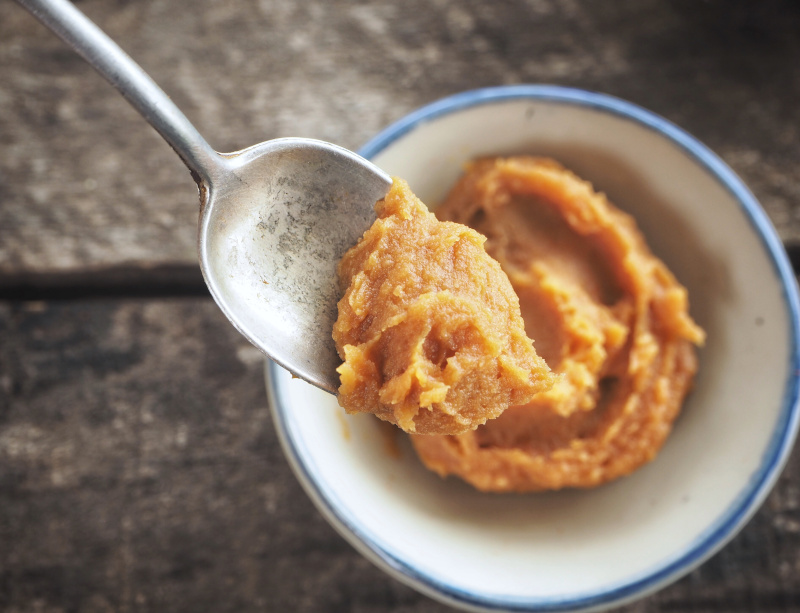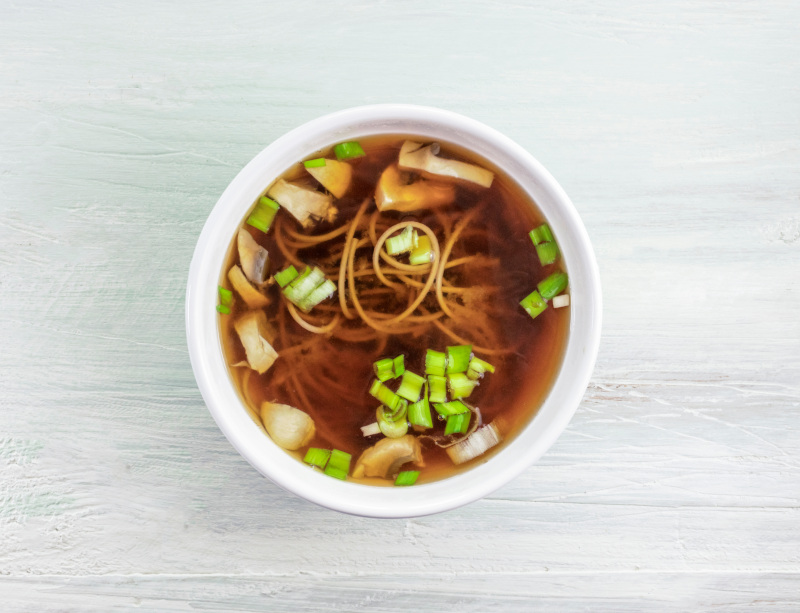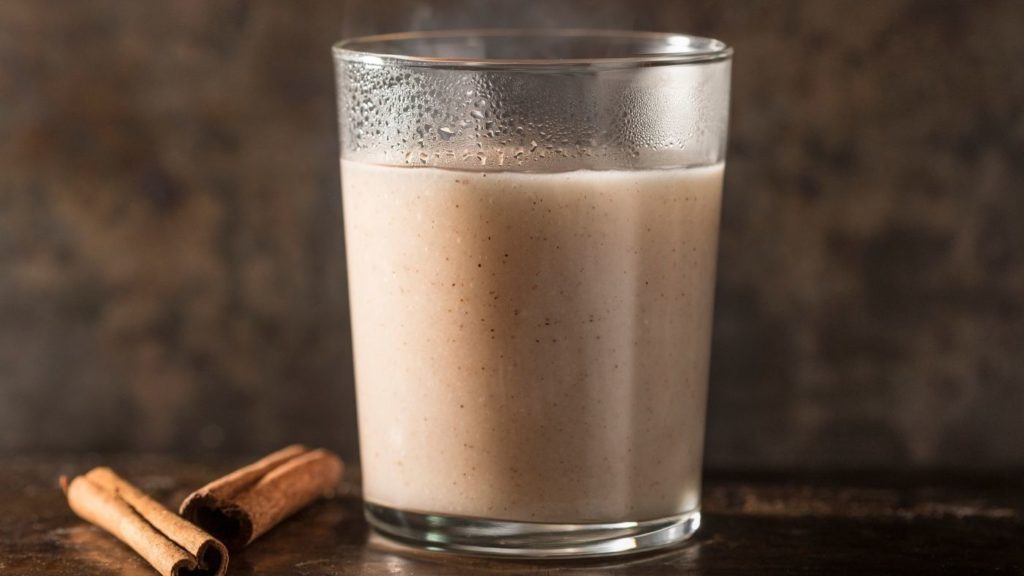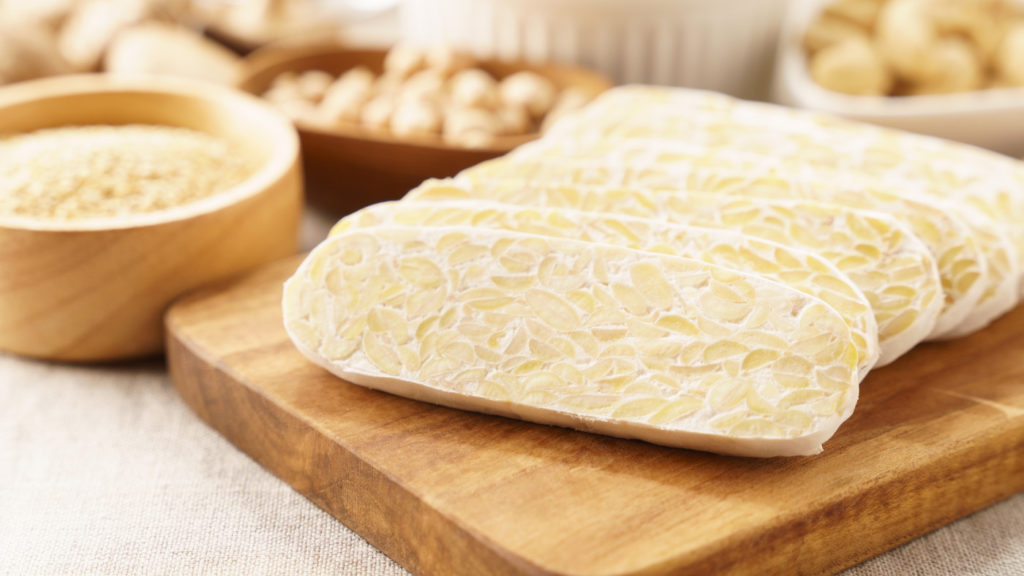Did you know that miso, the main ingredient in miso soup, has many health benefits?
Not only is miso a natural food with few ingredients, but it also contains many nutrients, enzymes, and probiotics that can have beneficial effects on us.
Yes, miso is good for you! We’ve looked through the science literature to help you discover the proven health benefits of miso!
What Is Miso?
Miso is a traditional ingredient in Japanese cuisine. It is a fermented paste usually composed of 3 ingredients: soybeans, salt, and rice colonized by a noble mold, the koji.
The ingredients are fermented together for months, even years, to allow microorganisms time to process proteins and develop flavours (“umami“).
Miso is like a solid version of soy sauce! It has the texture of a paste, and its colour can vary from creamy beige to dark brown, depending on the ingredients and the fermentation time. There are dozens of types of miso.
Miso is featured in a well-known Japanese dish, called miso soup. However, you can incorporate miso into many different dishes! It adds a lot of flavour and substance to a dish.
In addition to its pleasant taste, there are many health benefits in including it in your diet.

Miso Is Rich in Nutrients
Miso is usually made from soybeans. Soybeans are naturally high in protein, vitamins, minerals, and fibre, and low in saturated fat. (ref.) Soybeans also contain all the protein that humans need!
However, raw soybeans also contain antinutrients, such as lectins. Antinutrients are, in summary, molecules that bind to essential nutrients and prevent them from being absorbed by our digestive system.
The advantage of miso is that these antinutrients are destroyed during the preparation and fermentation of miso! By consuming miso, we can therefore enjoy all the benefits of soybeans. (ref..)
In addition, the microorganisms responsible for fermenting miso create and release new vitamins. Miso contains vitamins B, B2, B12, potassium, manganese, etc. (ref..)
Miso Is Helping Digestion
Legumes are, in their natural state, hard to digest for the human body. Luckily, fermentation transforms soy proteins into molecules that are easier to digest and assimilate by the human body. (ref..)
Miso also contains many beneficial microorganisms, which support our microbiota (ref..) such as bacteria, yeast, and, of course, koji.
Miso is also considered a prebiotic, which means that it can support the microorganisms that already live in us. Among other things, miso contains a lot of fibre, which our microbiota loves. (ref.)
Moreover, thanks to koji, miso contains many enzymes, which can help digestion.

Miso May Reduce the Risk of Some Forms of Cancer
Several studies have looked at the different cancers in regular miso consumers. While there is still much work to be done, the results are promising!
One study found that regular miso eaters had fewer cases of liver cancer. (ref.)
Other studies have looked at the impact of salt consumption on the prevalence of stomach cancer. Surprise! Miso, unlike pure salt and salty meat and fish, does not increase the chance of getting stomach cancer! (ref..)
Moreover, during miso fermentation, numerous molecules are created. These include many antioxidants, which may be effective against cancer. (ref.) Other molecules created could also reduce the risk of breast and prostate cancer. (ref.)
Miso Is Good for Blood Pressure
Miso is a salty condiment that is used as a dietary alternative to salt. It usually contains about 10% of its weight in salt.
One might think that this large amount of salt is harmful to the body, but not according to studies! Consumption of miso does not increase blood pressure compared to an equivalent consumption of salt. (ref..)
This would be due to a counteraction of the other beneficial ingredients in miso. (ref..)
So, there is much to be gained by using miso to season our dishes! Moreover, miso has much more flavour than “plain” salt. It brings umami and savoury notes to dishes. Thus, we don’t need to use as much of it!
Miso Is Safe to Eat
Despite its long fermentation at room temperature, miso is very safe to eat.
Its high salt concentration protects it from contamination. Under the right conditions, miso can be stored for decades!
In addition, miso’s good microorganisms create compounds that protect miso from pathogens. This is an extra line of defence against contamination. (ref..)
Note that miso usually contains soy, which can be a concern for people with allergies or thyroid problems. (ref..)
However, miso is not just made from soybeans. You can make miso from any legume!

Miso is easy to make at home
Did you know that miso is easy to make at home? With a few ingredients and the right equipment, you can easily ferment your own healthy miso at home. Thus, you’ll never run out of healthy miso soup!
Four main steps:
- Cook soybeans
- Mix all ingredients
- Put in a jar
- Wait!
Miso, like a good cheese or wine, improves over time. While some miso only ferment for a few weeks, others can be aged for several months. It’s a fascinating project to do at home!
Want to know more? Check out our Complete Guide to Making Miso or check out our Miso Making Kit.

